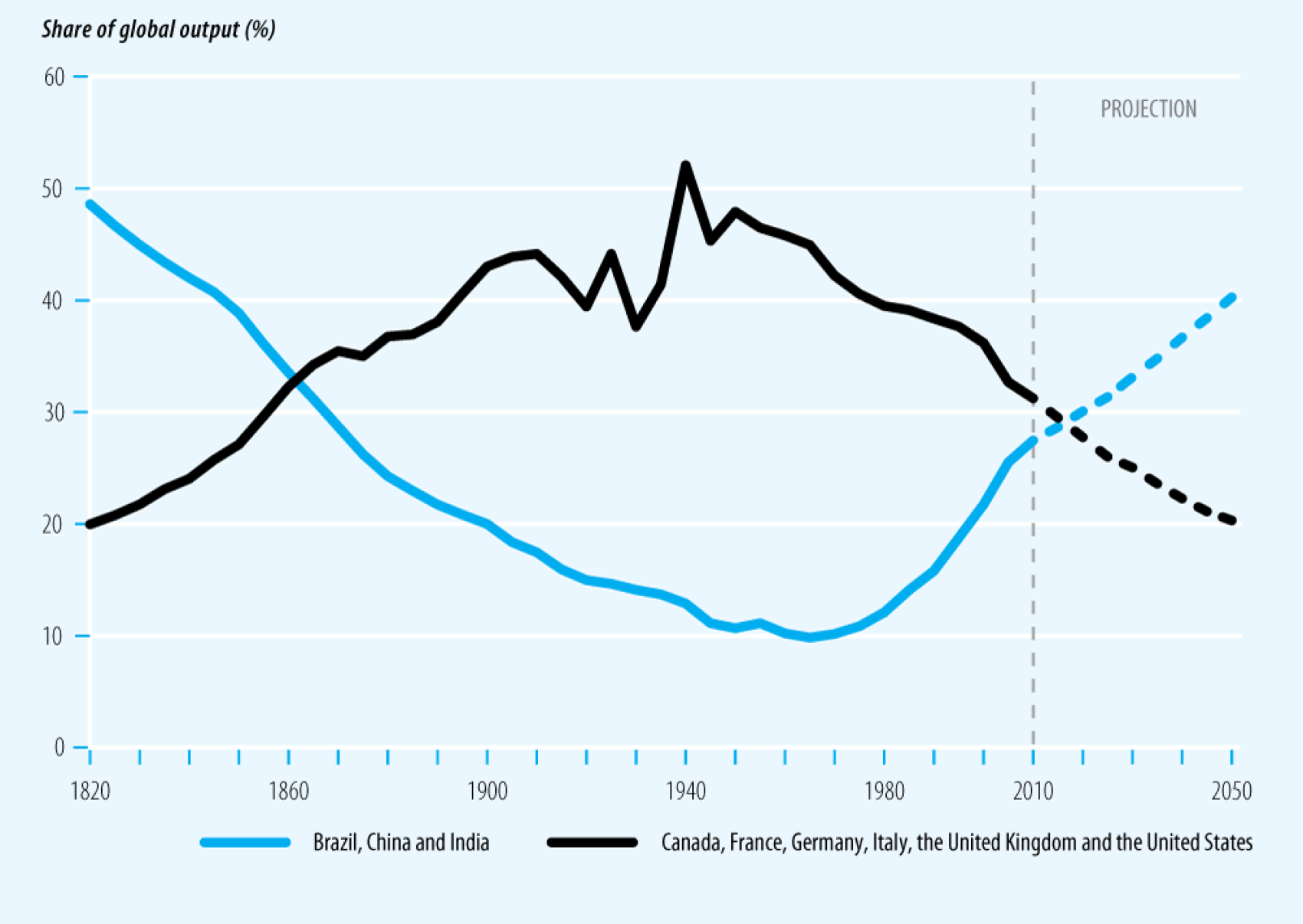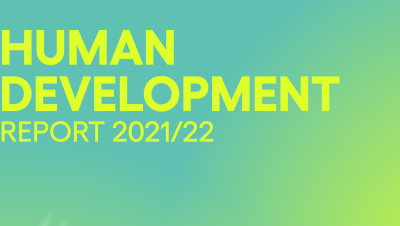The title of the UNDP’s latest Human Development Report (HDR), published just a couple of months ago, proclaimed ‘The Rise of the South’. The wording was designed, no doubt, to catch the headlines, and it did so very successfully.
It also has to be said that the report told a good and very important story. It argued that ‘the rise of the South is unprecedented in its speed and its scale’. It was ‘the story of a dramatic expansion of individual capabilities and sustained human development progress in the countries that are home to the vast majority of the world’s people’.
At the heart of this process was the performance of the three leading economies of the South, Brazil, China and India, and the fact, advertised prominently in the report, that their combined economic output is now equal to the total GDP of the longstanding industrial powers of the North, namely, Canada, France, Germany, Italy, the United Kingdom and the United States. But other countries had made great advances too, including Indonesia, Mexico, South Africa and Turkey, and a number of smaller economies, such as Bangladesh, Chile, Ghana, Mauritius, Rwanda and Tunisia, had also notched up ‘substantial progress’.
All in all, the HDR identified more than 40 countries in the South that had experienced since 1990 significantly greater gains in the Human Development Index (HDI) than would have been predicted based on their previous HDI performance. A fascinating scattergram presented in the report plotted the performance of these countries on the basis of a comparison of 1990 with 2012, dividing them into a ‘highlighted 18’, other ‘big improvers’ and the rest. This was the UNDP’s evidence, in a nutshell, for the claim that something really important and exciting has been going on over the past 20 years or so across the South as a whole.
I don’t quibble at all with the evidence and even less with the implication drawn from it, which is that a lot of poor countries are now generating wealth that can be used to underpin human progress. But I do wonder about the language that is still being deployed by UNDP.
The terminology of North and South dates back to the first report of the Brandt Commission published in 1980. It deployed that metaphor to capture in simple, binary, geographical terms an analysis of the global political economy that was rooted in a perceived division between a rich, exploitative, Northern core and a poor, exploited, Southern periphery. Since then, the term South (or, more confusingly still, the Global South, which is after all a contradiction in terms) has always been used to lump together for ease of reference a whole bunch of countries and peoples who are said to fit into the world order in a disadvantaged fashion and suffer the consequences of doing so.
HDR 2013 shows unequivocally that this is an utterly out-of-date portrayal of the world. This is great news, both analytically and substantively. But why not go the whole hog, as it were, and draw the further, and surely obvious, conclusion to be discerned from the evidence, which is that the South has now disappeared, precisely because it has grown. By the same token, what is the ‘Northness’ of a North characterised by financial crisis, slow growth and in many parts of the EU continuing recession?
The point is that both these terms are completely irrelevant. As I wrote in my own SPERI blog a few weeks ago, ‘we are all developing countries now!’ In the context of globalisation all countries in the world, whether in the past they were deemed to be ‘developed’ or ‘developing’, now have to find a niche in the system that permits them to chart a course of development that might work for their people in building prosperity and collective well-being.
It’s just a bit odd to me that the UNDP would not want to recognise this, especially since it has for 20 years or more sought to compare all of the countries of the world in respect of their human development. If the UNDP won’t break out of this old and outdated language, who will? So, say it loud and clear: the South has risen so far and so fast of late that it has completely disappeared as a valid category of analysis.
Tony Payne is Professor of Political Economy, University of Sheffield, UK, and Co-Director of The Sheffield Political Economy Research Institute (SPERI)
The HDialogue blog is a platform for debate and discussion. Posts reflect the views of respective authors in their individual capacities and not the views of UNDP/HDRO.


